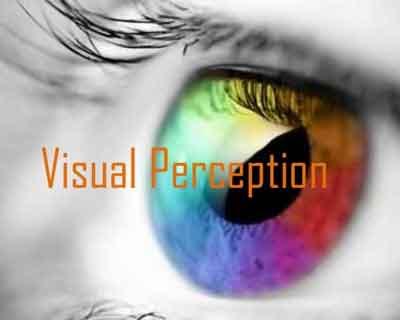- Home
- Editorial
- News
- Practice Guidelines
- Anesthesiology Guidelines
- Cancer Guidelines
- Cardiac Sciences Guidelines
- Critical Care Guidelines
- Dentistry Guidelines
- Dermatology Guidelines
- Diabetes and Endo Guidelines
- Diagnostics Guidelines
- ENT Guidelines
- Featured Practice Guidelines
- Gastroenterology Guidelines
- Geriatrics Guidelines
- Medicine Guidelines
- Nephrology Guidelines
- Neurosciences Guidelines
- Obs and Gynae Guidelines
- Ophthalmology Guidelines
- Orthopaedics Guidelines
- Paediatrics Guidelines
- Psychiatry Guidelines
- Pulmonology Guidelines
- Radiology Guidelines
- Surgery Guidelines
- Urology Guidelines
Visual perception declines with age, shows Study

New York : Older adults experience deficits in inhibition or the ability to do away with the distractions, which can affect how quickly they process information visually, say a study.
It is already known that staying on topic may be more difficult for older adults than it is for younger people because older adults begin to experience a decline in what is known as inhibition the ability to inhibit other thoughts in order to pursue the story line.
The new research showed that decline in inhibition also can affect visual perception.
"There is going to be more or less competition in some of the scenes you look at over the course of the day, so the prediction is that when there is high competition, older adults will take longer to resolve to see the objects in that scene," said Mary Peterson, Professor of Psychology at University of Arizona in the US.
Inhibition is an important part of neural processing throughout the brain, and it plays a significant role in visual perception.
For example, evidence suggests that when we look at an object or a scene, our brain unconsciously considers alternative possibilities.
These competing alternatives inhibit one another, with the brain effectively weeding out the competition before perceiving what is there, Peterson explained.
With regard to vision, age-related declines in the efficiency of inhibitory processes have been demonstrated in research involving simple perception tasks, such as the ability to detect symmetry and discriminate between shapes.
Peterson and her collaborators set out to see if the same deficits are evident when it comes to more complicated visual tasks.
Their findings, published in the Journal of Vision, suggest that they are.
The findings support and further evidence that older adults experience age-related deficits in inhibition related to vision.
"This is particularly interesting as it suggests that distraction is being processed extremely rapidly, and without conscious awareness, but that older adults are less able to tolerate this ambiguity than younger adults," lead author John AE Anderson from York University in Toronto, Canada, said.

Disclaimer: This site is primarily intended for healthcare professionals. Any content/information on this website does not replace the advice of medical and/or health professionals and should not be construed as medical/diagnostic advice/endorsement or prescription. Use of this site is subject to our terms of use, privacy policy, advertisement policy. © 2020 Minerva Medical Treatment Pvt Ltd